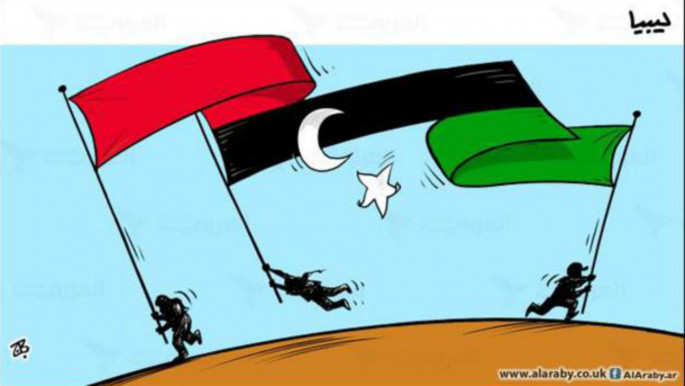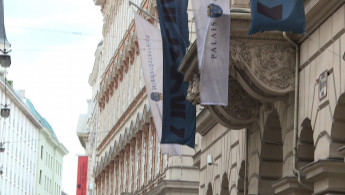Libya's government to ask for weapons at Vienna meeting
Arms embargoes, intelligence sharing and the migrant crisis will be discussed as rivalries continue to hinder Libya's fight against the Islamic State group
2 min read
Leading foreign ministers are set to meet in Vienna on Monday to discuss Libya's growing Islamic State group threat as the country's Government of National accord struggles to assert its authority.
The meeting of twenty countries, which will be co-chaired by the United States and Italy, comes a day after US Secretary of State John Kerry and Saudi Arabia's King Salman met in Jeddah to lay the groundwork for the talks.
Since March, the UN-backed government of Fayez al-Sarraj has slowly asserted its authority by taking control of the country's central bank and National Oil Corporation. With a rival military power in the country's east and a hostile minority preventing a government majority in parliament, however, the nation remains deeply divided as the Islamic State group grows unabated.
It is expected that the fledgling government will present a list of requests for its Western partners to assist its forces with arms, training and intelligence.
Those in attendance will also discuss whether to ease an arms embargo so that weapons can be sent to the government of Sarraj to take on the IS group. The group currently claims to run about sq. 250km of coastland, and have been spreading their attacks to the country's south.
Previous plans to deploy thousands of troops led by taly have yet to come to fruition, with Western nations desperate to secure the country which is key to tackling terrorism and controlling migration from the mediterranean coast.
 |
|
| Rival militias and the Islamic State group still divide Libya despite the installation of a UN-backed governmen [TNA] |
At present, the US, UK, France and Italy maintain a military presence around Libya, however their shifting associations with various rebel groups have meant that efforts to strengthen the government in Tripoli have often been hindered.
To complicate matters further, Western-backed countries including the UAE and Egypt have advocated a greater role for the rival forces of General Khalifa Haftar's Libyan National army in the country's east.
Rival factions from the east and west recently claimed to be gathering forces to drive the IS group out of its base in Sirte, but some fear that the groups will end up fighting one another.
The meetings today in Austria's capital are scheduled to last for two days, with the talks shifting focus to Syria on Tuesday.
Representatives from Iran, Saudi Arabia, and Russia are also expected to attend.





 Follow the Middle East's top stories in English at The New Arab on Google News
Follow the Middle East's top stories in English at The New Arab on Google News
![Israeli forces ordered bombed Gaza's Jabalia, ordering residents to leave [Getty]](/sites/default/files/styles/image_330x185/public/2176418030.jpeg?h=a5f2f23a&itok=_YGZaP1z)

